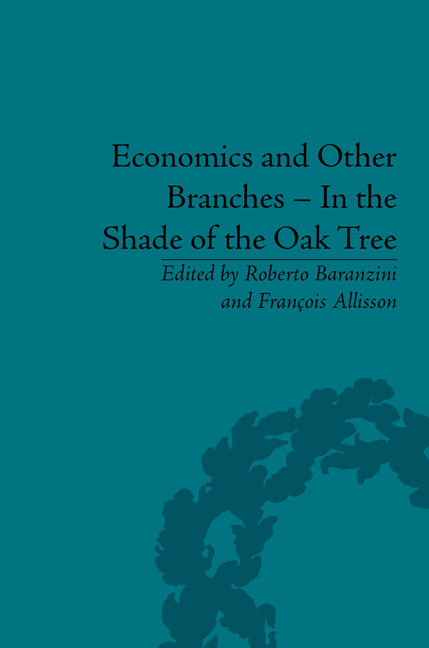Book contents
- Frontmatter
- CONTENTS
- List of Contributors
- List of Figures and Tables
- Introduction
- Pascal Bridel's Bibliography (up to 2013)
- Part I Léon Walras's Economic Thought
- Part II The Spreading of Thought
- Léon Walras's Reception
- The Lausanne School
- French Matters
- Cambridge UK
- Part III Monetary Theory
- Part IV Methodology
- Part V Economics and Humanities
- Economics and Social Sciences
- Some Insights from Visual Arts
- Part VI Economics and Civil Society
- 28 A Reflection on the Social Utility of Modern Macroeconomics
- 29 Failing to Control: Accountability in Historical Perspective
- 30 Does Transparency Engender the Confidence of the Governed? A Contribution to Political Thought
- 31 Face to the Environmental Challenge: Straddling the Fence between Social Responsibility and Penal Responsibility
- 32 Law as a System of Normative Production: Law and Semiotics
- Notes
- Index
29 - Failing to Control: Accountability in Historical Perspective
from Part VI - Economics and Civil Society
- Frontmatter
- CONTENTS
- List of Contributors
- List of Figures and Tables
- Introduction
- Pascal Bridel's Bibliography (up to 2013)
- Part I Léon Walras's Economic Thought
- Part II The Spreading of Thought
- Léon Walras's Reception
- The Lausanne School
- French Matters
- Cambridge UK
- Part III Monetary Theory
- Part IV Methodology
- Part V Economics and Humanities
- Economics and Social Sciences
- Some Insights from Visual Arts
- Part VI Economics and Civil Society
- 28 A Reflection on the Social Utility of Modern Macroeconomics
- 29 Failing to Control: Accountability in Historical Perspective
- 30 Does Transparency Engender the Confidence of the Governed? A Contribution to Political Thought
- 31 Face to the Environmental Challenge: Straddling the Fence between Social Responsibility and Penal Responsibility
- 32 Law as a System of Normative Production: Law and Semiotics
- Notes
- Index
Summary
For Pascal, a few sceptical remarks
An Old Problem
The belief that no human agent is entirely dependable, that humans – taken both individually and en masse – are prone to error and vice, that, in short, nobody can be trusted, is one of the few certainties (if a disheartening one) around which Western political theory has confidently built its precepts since classical antiquity. For all their differences, Greek and Roman authors as well as the writers in the Christian tradition converged on this simple assumption: because human agents are unreliable and people represent a threat for one another, the primary task of any political authority is to ensure the safety of its subjects from the hazardous behaviour of their peers.
In Thomas Hobbes's Leviathan, for example, the establishment of absolute power was justified precisely by this necessity of mutual protection. It was because individuals feared and mistrusted one another that they agreed to submit to the rule of a ‘common reason’ – represented by the absolute monarch or by some ruling body invested with similar prerogatives – thus preferring the certain evils of repressive authority, to the far worse uncertainties of anarchy. Whenever the sovereign failed in its task to grant safety and protection, the compact that constrained the subjects to obey its diktats would be dissolved, and the subjects themselves would be restored to the hazardous freedom of the state of nature.
- Type
- Chapter
- Information
- Economics and Other Branches – In the Shade of the Oak TreeEssays in Honour of Pascal Bridel, pp. 413 - 424Publisher: Pickering & ChattoFirst published in: 2014



